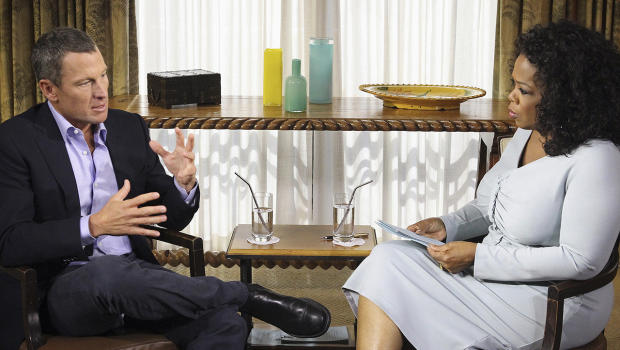Lance Armstrong is currently at the top of news headlines as he’s coming clean about his Performance Enhancing Drug (PED) use. It’s everywhere. And honestly, that would usually keep me from talking about it. If it’s popular then it’s probably getting enough press and doesn’t need my two cents. However, I couldn’t help but realize last night as I watched the news that there are some vital lessons for the church to learn in this story.
As someone who works in the church, I’ve seen the good, bad, and ugly. But when we learn from other’s failures we can be saved from having to make them ourselves.
1. We will be tempted “to juice” to make our performance match the expectation of others.
Lance Armstrong had a reputation to live up to. He wanted to be the best. So he blurred the lines. He inched out of what was acceptable as he moved closer and closer to that “whatever is necessary” place.
Sadly, I’ve seen this happen in the church world as well. We “juice” in our own unique way. We want our ministry to be seen as beefier than it really is. So we fudge the numbers a little on our attendance. We want to seem more spiritual than we really are. So we manufacture worship experiences rather than worshipping. We want to be relevant to our culture so bad that we dilute our message to make it more palatable to the people.
Lance shows the church that in the pursuit of excellence, performance is the gateway drug. We need to know Who we’re really trying to please and let that be enough.
2. “Everyone else was doing it” doesn’t excuse it or make it better.
Even though he’s coming clean, there is still this underlying message that he’s communicating. It’s the little morsel of justification that is nearly always expected in any confession: BUT!
Armstrong is right, from what it seems. He certainly was nowhere close to being the only major athlete using PEDs in that time. But the popularity of mistakes does not lessen the potency of mistakes.
In the church we have one example to live by and His name is Jesus. With whatever we do, individually as well as corporately, HE needs to be who we’re looking to. Any comparison that is going to be made shouldn’t be with the standard of other people or other churches. It should be with Jesus.
3. Your accomplishments always get discounted when they come at the cost of your integrity.
Though I don’t follow cycling or honestly care much for it, I was saddened when Armstrong was stripped of all his accomplishments. I suppose that’s because I’m still human and that’s just awful. To see someone’s life work thrown out with yesterday’s garbage is heart-breaking.
It’s even sadder when you see this happen in the church world. And it does happen.
A church or a church leader can accomplish much, but when they’re integrity has been compromised to get them there, it doesn’t matter. Everything gets taken away. We could argue whether it’s fair or not, but it doesn’t change that it’s fact. It’s what happens.
So the message is clear: We need to make sure we don’t get blinded by the lure of outter success that we become an inner failure. All the prestige of being a famous church leader is lost when it comes out that you’re not authentic. And all the splendor of your amazing church fades when people come to realize that you’re more about show than about actually being the loving, body of Christ in the world today.
The reason this all matters so much is that we’re not talking about Tour de France’s. We’re talking about eternal lives. And so let us be the Church that chooses in both the big moments as well as the small ones to just do this: Look like Jesus.


